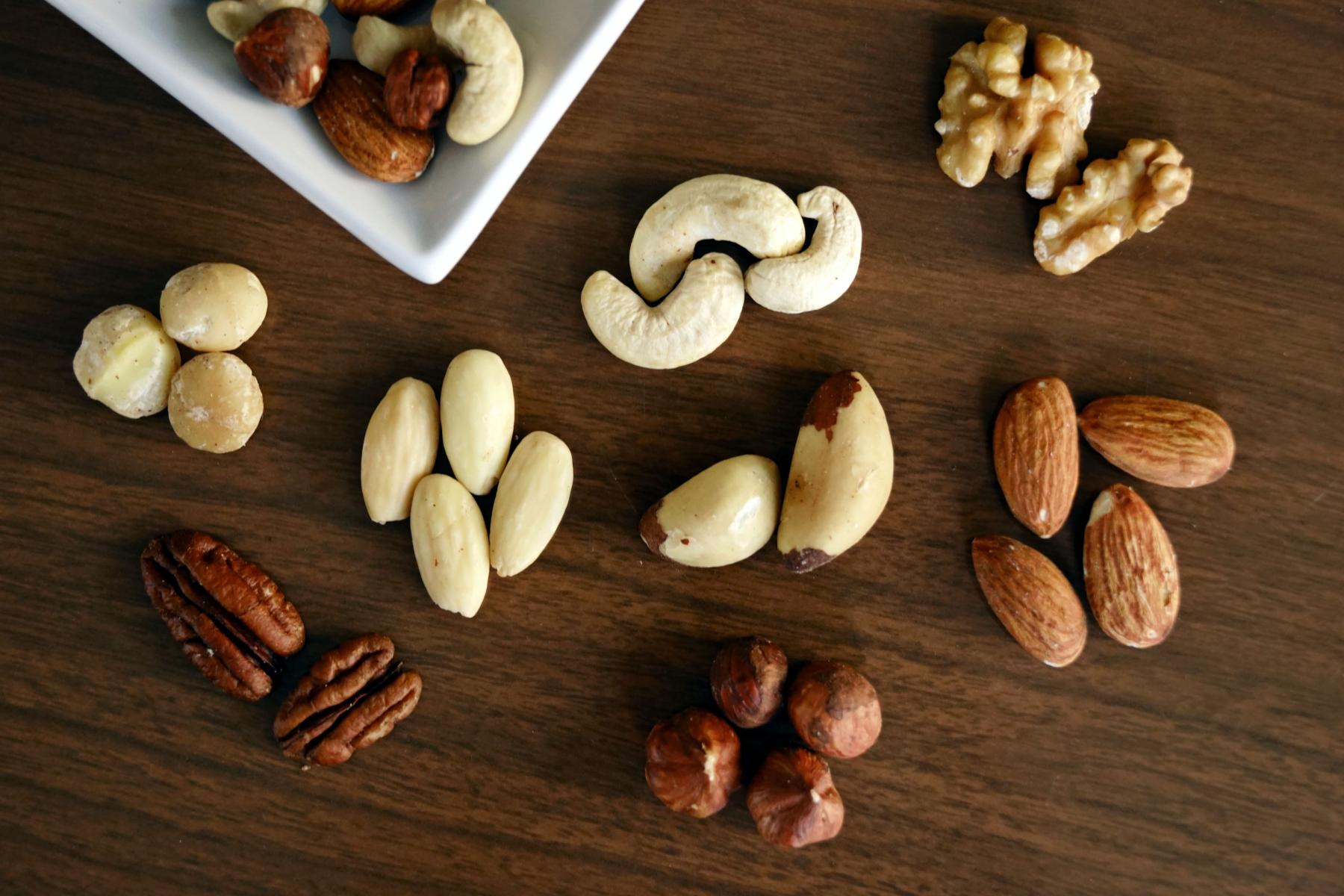Is it possible to prevent mental illness and other neurological conditions by eating healthy? What about which foods to eat to promote brain health?

Tori Stengal, Dietetic Intern, 2021
Monday, May 30, 2022
Is it possible to prevent mental illness and other neurological conditions by eating healthy? What about which foods to eat to promote brain health?

With the heightened awareness of psychiatric disorders, like anxiety and depression, rising across the globe, scientists are beginning to investigate new ways to treat these conditions. Even conditions such as Alzheimer's Disease are looking to potential nutrition interventions to delay the onset and progression of the disease. Although we don't have concrete answers at this time, here's what the current research says:
Less processed diets have better mood outcomes.
Diets that consist of fruits, vegetables, whole grains, and fish, contain anti-inflammatory properties which are associated with reduced depression symptoms. On the other hand, most studies do make an association with a western, highly processed diet, with increased symptoms of depression, ADHD, Alzheimer’s, and anxiety. Although there isn’t a defined mechanism or established causal relationship between these factors, we know that many environmental factors can play a role in our nutrition and the foods that are available to us. Our best bet is to follow a healthy diet that is full of fruits, vegetables, lean protein, low-fat dairy, and whole grains.
Nutrition & Sleep Play a Role in Mental Health
As we all know, when we’re feeling tired, we might reach for that cup of coffee, tea, or energy drink to keep us going. But did you know that caffeine and other substances like nicotine and alcohol can impact our nutrition and mental health?
Studies show that when looking at college students who drink caffeine and exercise, those that drink less caffeine and exercise more are more likely to get better quality sleep. In addition to the quality of sleep decreasing when people drank more caffeine, the participants who had less quality sleep also had a higher likelihood of exhibiting symptoms of anxiety or depression. In other words, caffeine can impact our sleep quality which in turn can influence our mental health.
Nicotine is a stimulant and can impact our mood. Studies focusing on nicotine found that those who smoke and are nicotine dependent are more likely to have sleeping problems such as sleep apnea and insomnia. This study also found that those who have depressive symptoms have a harder time quitting smoking as well. For additional information on the health effects of smoking and vaping, please see the American Lung Association's website: lung.org/quit-smoking.

Struggling to get some sleep? Here are some foods that might help with falling asleep at night: Almonds, avocado, bananas, barley, brown rice, cantaloupe, cashews cauliflower, celery, cereal, chamomile, cheese, chickpeas, coconut water, cottage cheese, cucumber, dates, edamame, eggs, figs, flaxseed, grapefruit, halibut, milk, oatmeal, orange juice, peppermint tea, pistachios, prunes, and turkey!
Alcohol can also impact our nutrition and our quality of sleep. When we drink alcohol, our liver will prioritize filtering it out of our blood this can lead to decreased absorption of other nutrients, such as niacin and thiamin. With chronic alcohol abuse, we find alcohol use can affect our nutrition status by decreasing about the ability to absorb nutrients, by providing little nutrition, and by potentially replacing food intake. So, in addition to alcohol affecting our nutrition intake, alcohol can also prevent us from getting a good night’s sleep. Studies show that alcohol (regardless of the amount) can prevent adequate sleep by impacting how much deep sleep we get and by taking longer to fall asleep. These two things in combination can then prevent us from finding restful sleep. Although alcohol can make us feel drowsy, our ability to stay asleep while intoxicated is impaired.
So, the greatest takeaway here is to practice moderation with substances. We don’t want to be dependent on these substances because they are shown to impact our quality of sleep, and thus our mental health. Those who have mental illnesses are also more likely to use substances as a way to cope. All in all, getting enough sleep at night is crucial for promoting well-being.
Inadequate Nutrition can Impact Your Mood
Did you know that certain vitamin deficiencies can be exhibited through poor mood and cognition? For example, studies show that being low in vitamin D can contribute to symptoms of depression. Other vitamin deficiencies like vitamins B-12, B-6, and folate can impact our mood. Symptoms of these deficiencies can include low mood and fatigue.
In some cases, doctors can determine the severity of a depressive episode based on inflammation markers within the body. Certain research studies suggest that Omega-3 fatty acids can reduce inflammation in the brain, which in turn reduces depressive symptoms. Good sources of omega-3 fatty acids include fish, shellfish, nuts, and seeds.

Food Insecurity can Contribute to Poor Mental Health
There are a few things we can change in our diet, but what do we do if getting food to the table is the main concern? Well, apparently it has an impact on our mental health as well. According to this 2017 study from the Journal of Preventive Medicine, food insecurity negatively impacts mental health regardless of location in the world and socioeconomic status. This means that finding nutritious foods can be challenging and that additional stress can be detrimental to our well-being. Although we may not be able to fix our current situations immediately, we can help our community by donating food and our time to local food pantries to ensure that nutritious food is not a stressor within the community.
If you or someone you know is struggling to have enough to eat, there are resources on-campus and in the Lincoln area available. In the University Health Center, there is the Husker Pantry, where you can take what you need to supplement your pantry space and meals. Fortunately, the Husker Pantry is opening another location on East Campus, in Filley Hall! Other good resources in the area are FoodNet in Lincoln or seeing if you qualify for SNAP benefits.
Gut and Brain Health Influence Each Other
Another interesting discovery is how our gut bacteria can influence our health! Recent studies are beginning to show promise in how the foods we eat can help certain species of bacteria flourish within our gastrointestinal tract. These bacteria can then break down certain fatty acids and carbohydrates that are health-promoting, like medium-chain fatty acids. These breakdown products play a role in the synthesis of serotonin, norepinephrine, and dopamine.
Other studies are showing that eating a diet that is healthy for our gut can potentially play a preventative role in the development of Alzheimer’s disease. Although still preliminary, these studies really emphasize the importance of eating nutritious foods in order to support physical and mental health. Foods that are fermented, have fiber, and/or medium-chain fatty acids are ones that research has shown to be beneficial for our gut health.
What can I do with my diet for my mental health?
Ideally, we want to eat a diet rich in fruits, vegetables, whole grains, lean protein, and dairy products. Having a variety of different food groups in our diet will allow us to get in all the nutrients we need and prevent deficiencies. By practicing moderation, we can enjoy substances like caffeine and alcohol, and other processed foods without it greatly impacting our mental and physical health.
Although proper nutrition cannot “cure” any one of a particular mental illness or neurological condition, having a healthy lifestyle can prevent further complications by allowing us to have the building blocks necessary to function and thrive. In addition, to have a healthy foundation, having a healthy lifestyle can provide appropriate coping skills for stressors in our daily lives.
Sometimes in order to thrive, we have to ask for help. If you or someone you know is struggling to afford food, to cope with a mental condition, or to manage their stress there are resources available on campus and in the Lincoln area.
For more information on student resources available, go to these websites for more information: pantry.unl.edu and caps.unl.edu



